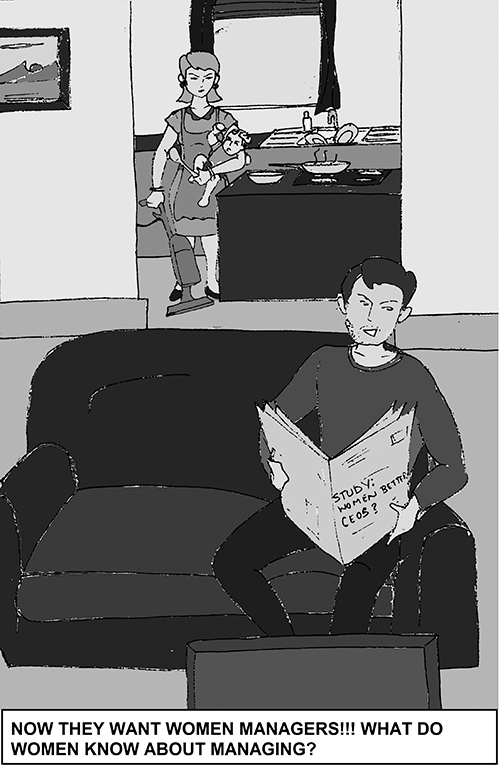
Women’s rights have come extraordinarily far in the last century. We get to wear pants, leave our kitchens and, if we’re okay with being ostracized for neglecting our children, even get careers in lower-level management!
Frivolities aside, many women still endure the subtleties of sexism on a daily basis from the pleasant men who unknowingly inflict their bigotry upon us.
Subtle sexism can take many forms that women don’t recognize, or choose to overlook. Pennsylvania State University and Phillips University conducted a study of sexist incidents that occurred in the workplaces of 120 participants.
One of the most common sexist remarks encountered in the research involved telling women that they were “overreacting” or “too easily offended.” Women frequently hear this reaction from their bosses, their friends and even their closest loved ones.
Frankly, that statement needs to go die in a fire.
Anyone trying to tell intelligent women that they are overreacting in any situation needs to consider how patronizing and bigoted they sound, regardless of whatever the complaint is. Attacking a person’s character instead of addressing a problem is too often an oppressive maneuver, not a legitimate one.
Another big blip on the sexist radar comes in the form of attitudes toward feminism. For whatever reason, this benign term has turned into an outlet for derisive remarks and flippant abuse. Anyone who believes that women should have the same, equal rights as everyone else fundamentally believes in feminism, and mocking the movement is both obnoxious and distasteful at this point.
Yes, there are some extreme feminist advocates who are probably a little bit crazy, but they do not define or encompass all of the feminist movement. Justifying hateful jokes or insinuating that a woman is humorless for not thinking feminist bashing is hilarious isn’t OK. Women have a sense of humor—we just don’t think being glib about our equality is appropriate when only 4 percent of America’s 500 largest companies have female CEOs. That’s only 20 women to 480 men, and it’s a number that is pitifully low.
There are also many smaller attitudes that are much harder to identify and potentially more hurtful to the half of our population that happens to have ovaries. Our society is rampant with stigmas about female appearance, and women who stray too far outside the lines can be ostracized and shamed.
I’ve witnessed male acquaintances and friends alike observing a woman with a shorter haircut and reacting with a strong sentiment that she would look so much better with longer hair.
If the woman happens to also be wearing gender-neutral clothing, a slew of borderline homophobic comments come out, along with a general distaste at the woman’s “decision” to not look pretty.
Women aren’t trophies.We don’t always have to be polished and, yes, it’s even possible we don’t care at all what you think of what we’re wearing. If we want the ease of short hair and the comfort of cargo shorts, we deserve the same reaction that a man would get in the same outfit.
This phenomena is not just confined to the heterosexual men who incorporate mild acts of sexism into their daily routines. Some homosexual men frequently give just about any woman they meet unsolicited beauty advice, whether it be about the clothes she wears or how she does her makeup. On some level, this is communicating that a man, regardless of sexual preferences, has high expectations of how a woman should look and dress.
Even worse, there is a bizarre acceptance of gay men groping women because of the whole “it’s OK, I’m gay” argument. A famous example of this is when fashion designer Isaac Mizrahi grabbed actress Scarlett Johansson’s breasts on live television without Johansson’s approval.
How this isn’t assault, I’ll never know. There are plenty of people I’m not attracted to, but I don’t presume to have the authority to go grabbing their parts. Male ownership over the female body comes in many forms, and it’s unacceptable in all of them.
The most frustrating thing about sexism isn’t the jokes or the lower pay. It’s how so many good people don’t even know they’re doing it. It can be perpetrated by coworkers or loved ones, from little remarks to grand gestures of prejudice.
I refuse to believe that the majority of men are inherently misogynistic and cruel, yet we live in a nation where stereotypes and chauvinism taint so many interactions. Perhaps we all need to step back and reflect on the little things we do.

